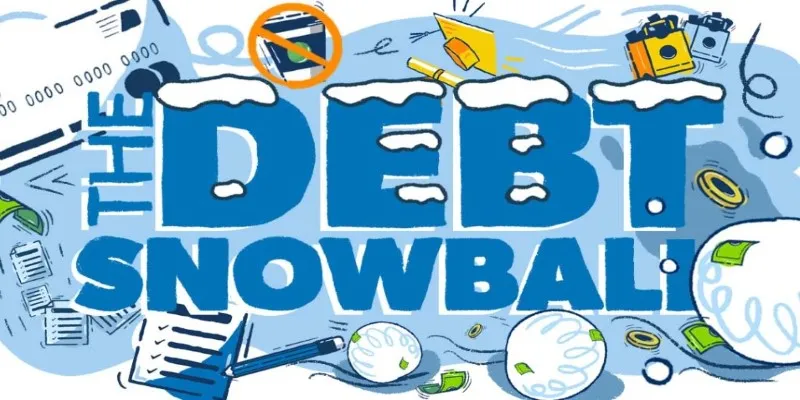Managing debt can feel like navigating a maze, with numerous paths and potential pitfalls along the way. Two popular approaches, debt management and debt settlement, offer different solutions to tackle financial challenges. Each option has its own set of advantages and disadvantages, making it essential to understand how they work and their impact on your financial future.

Whether you're overwhelmed by multiple payments or seeking a way out of debt, knowing the difference between these two strategies can help you make a more informed decision. Lets dive into what each option entails and how they can affect your life.
What is Debt Management?
Debt management is a structured approach to managing and paying off your debts. It often involves working with a credit counseling agency that helps you create a plan to pay back what you owe. This typically includes negotiating lower interest rates or fees with creditors, consolidating your debts into a single monthly payment, and setting up a budget to ensure that you can meet your obligations.
When you enter a debt management plan (DMP), you deposit a fixed amount into an account each month. The credit counseling agency uses these funds to pay your creditors according to the agreed-upon plan. This approach can simplify your payments and potentially save you money on interest over time.
Pros of Debt Management
One major advantage of debt management is the potential for lower interest rates. Credit counselors can negotiate with creditors to reduce rates and eliminate late fees, leading to significant savings over time. A debt management plan (DMP) also provides a structured payment system, making it easier to track payments and avoid missed due dates.

Additionally, consistently making payments can improve your credit score by enhancing your credit utilization ratio. Furthermore, credit counseling agencies offer educational resources, empowering you to make informed financial decisions and avoid future debt issues.
Cons of Debt Management
Despite its benefits, debt management isn't suitable for everyone. One drawback is the potential temporary impact on your credit score when enrolling in a DMP. Creditors might view this as a sign of financial struggle, affecting your ability to secure new credit.
Additionally, DMPs require strong discipline; missing a payment or withdrawing from the program can lead to the loss of negotiated benefits and renewed collection efforts. Lastly, these plans typically last several years, demanding lifestyle adjustments that can be challenging for many individuals and families.
What is Debt Settlement?
Debt settlement is another option for individuals seeking relief from overwhelming debt. This process involves negotiating with creditors to settle your debts for less than what you owe. Typically, you would stop making payments to your creditors and instead deposit money into a separate account. Once enough money is saved, you or a debt settlement company can negotiate a lump-sum payment with creditors to settle the debt.
This approach is often seen as a way to significantly reduce the total amount of debt owed. For example, if you owe $10,000, a creditor might agree to accept $6,000 as a full settlement. While this can seem like an attractive option, it comes with its own set of challenges and risks.
Pros of Debt Settlement
Debt settlement offers the potential for significant savings, allowing you to pay less than what you owe and providing immediate financial relief. This approach is particularly appealing for those struggling to meet minimum payments and facing bankruptcy.
Additionally, debt settlement can lead to a quicker resolution, often settling debts within a few months to a couple of years. Once debts are settled, you can start rebuilding your credit. Although there may be an initial drop in your credit score, eliminating burdensome debt can ultimately improve your financial situation.
Cons of Debt Settlement
While debt settlement has its benefits, it also carries considerable risks. A significant downside is the negative impact on your credit score when you stop making payments, which can lead to a sharp decline. Creditors may escalate collection efforts, causing added stress.
Moreover, forgiven debt can be considered taxable income by the IRS, resulting in potential tax liabilities. Additionally, many debt settlement companies charge high fees that can diminish your savings, and there's no guarantee that they will successfully negotiate favorable terms for you.
Key Differences: Debt Management vs. Debt Settlement
Understanding the key differences between debt management and debt settlement is crucial for making informed financial decisions.
Approach to Debt
Debt management focuses on creating a structured repayment plan to pay off your debts in full over time. It involves working with a credit counseling agency that negotiates with your creditors to secure lower interest rates and consolidate your debts into a single monthly payment. This method emphasizes discipline and consistency, allowing you to improve your credit score gradually as you make regular payments.

In contrast, debt settlement aims to resolve debts for less than what you owe. This often involves stopping payments to creditors while saving money to make a lump-sum offer to settle the debt. While this can lead to significant savings, it typically results in a more substantial negative impact on your credit score due to missed payments and the potential for aggressive collection actions.
Timeframe
Another major difference is the timeframe. Debt management plans usually span three to five years, whereas debt settlement can sometimes be resolved in a matter of months, depending on how quickly you can save for a settlement offer.
Impact on Credit Score
Debt management focuses on repaying debts in full with structured support, while debt settlement seeks to reduce the amount owed through negotiation, often at the cost of immediate credit health. Understanding these differences helps you choose the right path based on your financial circumstances and goals.
Conclusion
Both debt management and debt settlement offer viable options for addressing financial challenges, but they serve different purposes. Debt management focuses on paying off debts in full through a structured plan, while debt settlement aims to negotiate reduced payments.
Understanding the implications of each choice, including their impact on your credit score and potential costs, is crucial. Consulting a financial advisor can help you make the best decision tailored to your unique situation, leading to improved financial stability.







